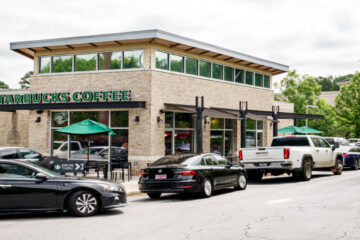Before the Covid pandemic, most Americans who held white-collar jobs went into an office. My offices offered more flexibility than others, but in general, the majority of people went to a physical location.
There wasn’t actually a lot of debate about whether working from home was a good idea. That’s at least partially because many companies had invested significant dollars in leasing or buying offices.
Related: Struggling whiskey company closes operations, no bankruptcy yet
Working from home was more common in the startup space. Some fledgling companies realized it made little sense to spend their money on an office rather than on people who could push their product or service forward.
Still, even as more companies decided they did not need permanent office space, many still wanted a place to get together.
That led to the rise of the coworking space. Coworking can look a number of different ways. In some cases, a company rents a space that serves as a de facto office.
In other situations, a company may pay for a floating desk, so that a few workers, or even just one, can come into a physical place and use the shared facilities.
💵💰Don’t miss the move: Subscribe to TheStreet’s free daily newsletter💰💵
Most of these spaces offered conference rooms that can be booked by the hour as well as private spaces for phone calls or small meetings. Many also had amenities like fancy coffee bars and even beer and wine service.
The pandemic, as you might imagine, was devastating for this type of business. People not only questioned the idea of offices in general, but they also simply did not want to be around other people.
That led to the collapse, bankruptcy, and eventual reemergence of the biggest player in the space, WeWork. Now, another cowork pioneer with a noble mission has filed for Chapter 7 bankruptcy.
Coworking spaces allow people to come together in person.
Image source: Getty Images
Coworking is a challenging business model
While WeWork made the idea of coworking famous, it also showed the model’s dangers. Put simply, you need enough customers to cover your overhead, or it’s irrelevant that you offer fancy coffee service and have Pizza Wednesday.
That brand flamed out because it grew too fast, overestimated demand, and then ran face-first into the pandemic.
More bankruptcies:
Popular restaurant and bar chain files for Chapter 11 bankruptcyPopular athletic shoe chain files for Chapter 11 bankruptcyAward-winning cosmetics brand files for Chapter 11 bankruptcy
You can’t really plan to be a business based on people coming into a physical location during a pandemic, which forces people to stay away from each other. Nobody saw Covid coming, and it devastated companies with much deeper histories than WeWork.
The Covid pandemic wasn’t the only reason WeWork collapsed — there was plenty of greed and hubris involved, too. Yet now, even a coworking company built from noble intent has also failed.
Nonprofit cowork chain files Chapter 7 bankruptcy
Innovation Studios, a multi-location coworking space company in Boston, filed for Chapter 7 bankruptcy protection on April 8. It was a voluntary filing by the nonprofit entity.
The company shared on its website a simple mission:
“Make Innovation, entrepreneurship, and business ownership attainable through an empowering and inclusive network of community spaces and individualized pathways.”
Related: Popular beer brand shuts down brewery, lays off employees
Innovation Studios also shared a vision statement:
“Be the home where aspiring individuals are encouraged to confidently grow their ideas into successful businesses.”
Those efforts have come to an abrupt halt.
Innovation Studios’ Chapter 7 bankruptcy filing showed that it had assets in the range of $0-$100,000 with liabilities in the range of $100,001-$1,000,000. The company also shared that it has 1-40 credits and that it does not expect there will be sufficient assets in the estate to make a payment to the unsecured creditors.


